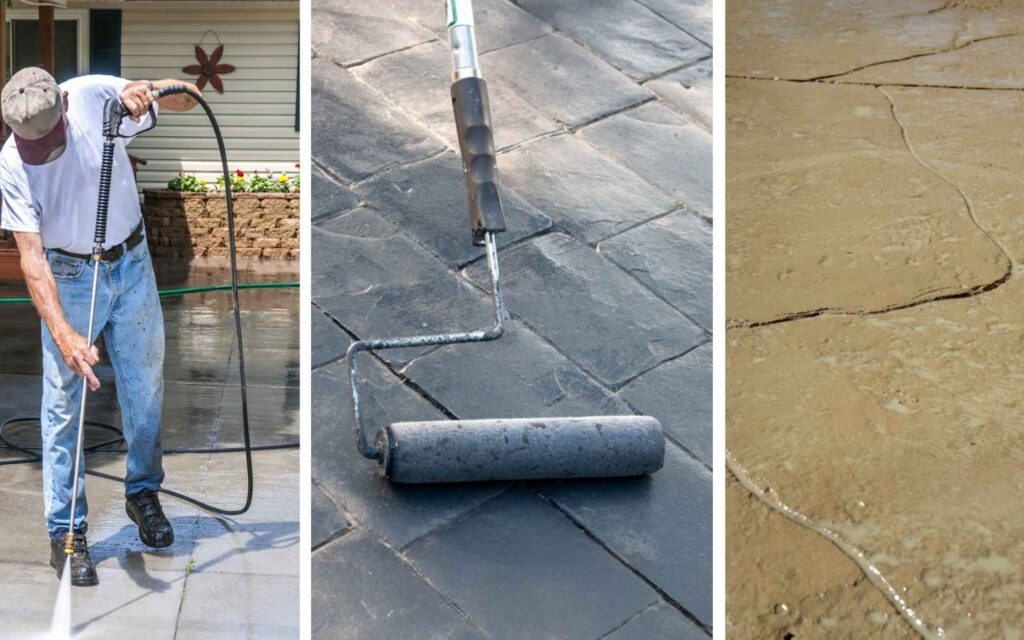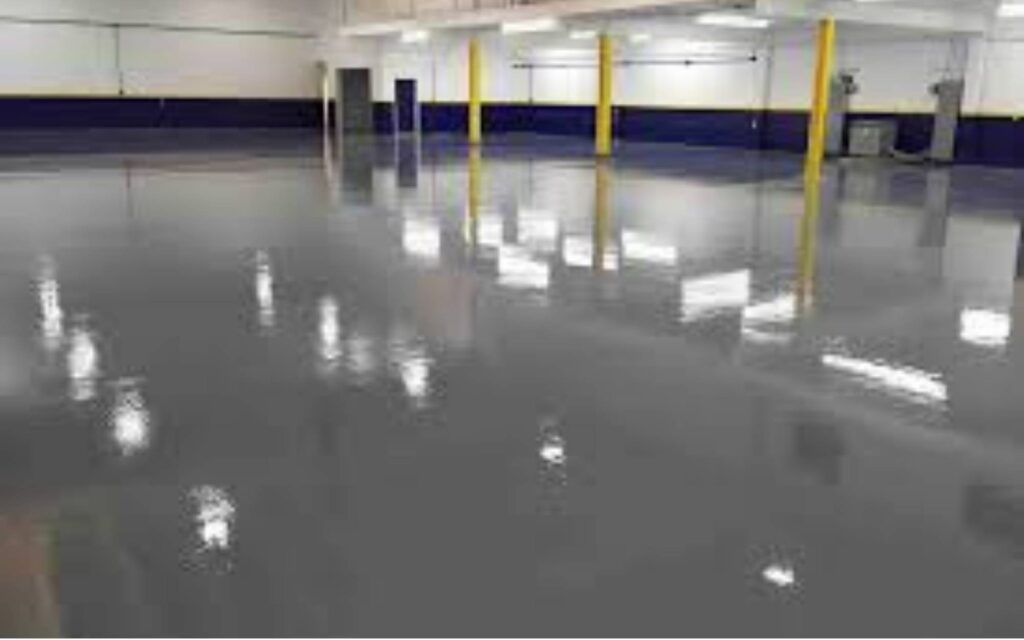If you’ve ever scrubbed an old oil stain from your garage or driveway, you already know: concrete doesn’t forgive easily. It absorbs everything — oil, grease, water, even rust — like a sponge. But what if you could stop these stains before they even start?The answer lies in sealing your concrete.In this guide, I’ll explain how concrete sealers work, which type is best to prevent oil stains, and how sealing ties into your overall concrete maintenance plan.how sealing ties into your overall concrete maintenance plan.
Why Concrete Gets Stained So Easily
Concrete is naturally porous. That means every oil drop seeps deep inside, making it extremely hard to clean without strong degreasers or pressure washing.
🧼 Already dealing with a stain? Start here: How to Remove Oil Stains from Concrete: Best DIY Methods & Cleanup Tips
What Does a Concrete Sealer Do?
A concrete sealer is a protective barrier that coats the surface and blocks out:
- Oil & grease
- Water & moisture
- UV rays & salts
- Rust from metal contact
When properly applied, sealers reduce absorption and make cleanup dramatically easier.
Types of Concrete Sealers to Prevent Oil Stains

There are several types of sealers — here’s what works best for driveways, garages, and shop floors.
1. Penetrating Sealers
✅ Best for long-term oil resistance
- Silane/siloxane-based
- Soak into the concrete and repel liquids
- Allow the concrete to “breathe”
Ideal for outdoor areas exposed to oil, salt, and weather.
2. Acrylic Sealers (Water-Based or Solvent-Based)
✅ Best for visible shine + light protection
- Form a film on top of the surface
- Easier to apply, quick drying
- Not as durable against motor oil
Good for aesthetic areas like patios or indoor floors.
3. Epoxy & Polyurethane Sealers
✅ Best for garage floors and commercial use
- Extremely durable and chemical resistant
- Create a glossy finish and tough barrier
- Higher cost and professional application may be needed
Combine this with a non-slip additive for safety.
How Sealing Helps Against Oil Stains
Here’s how sealing helps reduce maintenance headaches:
| Benefit | What It Does |
| Blocks oil | Prevents oil from penetrating concrete pores |
| Easier cleanup | Stains stay on the surface, not absorbed |
| Enhances appearance | Boosts color, shine, and surface life |
| Reduces long-term costs | Less need for expensive cleaning or resurfacing |
How Often Should You Seal Concrete?
- Driveways: Every 2–3 years
- Garage floors: Every 3–5 years
- Outdoor exposed concrete: As needed based on weather and traffic
Always clean and dry your surface before applying any sealer.
🧴 Need product advice? Check out: Best Products to Remove Oil Stains from Concrete
When to Seal After Cleaning an Oil Stain
If you’ve just cleaned an oil stain, wait 24–48 hours for the area to fully dry before sealing.
Applying a sealer over oil residue traps the stain, so make sure you’ve done a thorough job. Need help cleaning? Read this first:
How to Remove Oil Stains from Concrete: Best DIY Methods & Cleanup Tips
Can You Seal Over an Old Oil Stain?
Technically yes, but not recommended. Sealing over oil will:
- Lock the stain in place permanently
- Reduce adhesion of the sealer
- Cause discoloration and patchy sealing
❗ Learn how to remove deep stains first: DIY vs Commercial Cleaners for Oil Stains
FAQs
Does sealing concrete really stop oil stains?
Yes — while no sealer makes concrete 100% stain-proof, sealing significantly reduces absorption, making spills easier to clean
What is the best sealer to prevent oil stains on a garage floor?
Epoxy or polyurethane sealers are best for garage floors due to their chemical resistance and strength.
Is sealing concrete worth it?
Absolutely. Sealing not only prevents stains, but also extends the life of your concrete, increases durability, and enhances visual appeal



